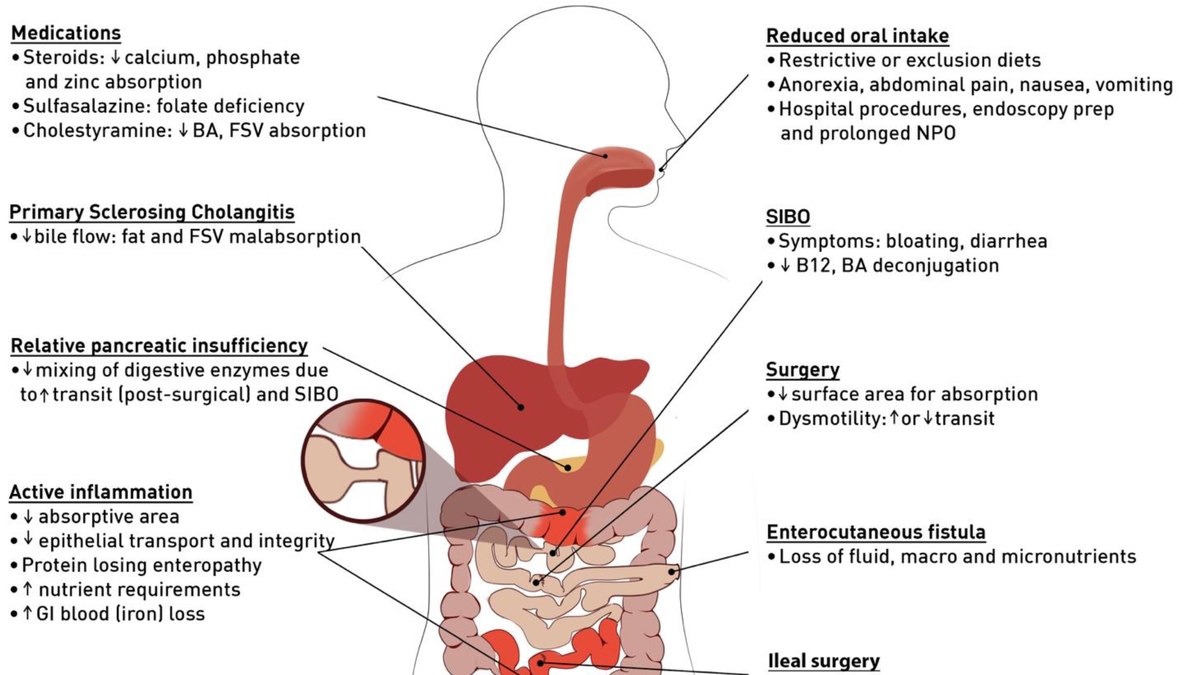
Inflammatory Bowel Disease (IBD), including Crohn’s disease and ulcerative colitis, affects millions worldwide and significantly impacts the quality of life due to its chronic and sometimes unpredictable nature. A recent study has brought to light an often overlooked aspect of IBD patient care – the risk of malnutrition.
Malnutrition Prevalence amongst IBD Patients
According to a study led by the University of North Carolina Health Care, a substantial number of IBD patients are at high risk for malnutrition. Using a validated screening tool, the research found that 14% of IBD patients screened positive for malnutrition, with a prevalence of 15% among patients with Crohn’s disease and 12% among those with ulcerative colitis. These findings underscore the importance of addressing the nutritional needs of these patients as part of their comprehensive care.
Symptoms and Risk Factors
IBD patients can experience a range of symptoms that contribute to nutritional deficiencies, including diarrhea, abdominal pain, fever, nausea, and loss of appetite. These symptoms can lead to inadequate nutrition intake and nutrient loss, which can occur at any body weight. It is also worth noting that patients with active IBD flare-ups have a higher prevalence of malnutrition, according to the study findings.
The Role of Dietitian Support in IBD Clinics
The study emphasizes the critical need for same-day dietitian support for IBD patients. Dietitians can conduct formal nutrition assessments and develop an individualized dietary plan to address the patient’s nutritional needs, thereby playing a key role in patient care. This is especially crucial for patients who screen positive for malnutrition.
The Importance of Multidisciplinary Care
Managing IBD requires a multifaceted approach, and the study underscores the importance of multidisciplinary care for these patients. In addition to gastroenterologists, other healthcare professionals like dietitians and psychologists can provide essential support in managing the physical and mental health aspects of the disease.
Nutritional Status of Pediatric IBD Patients
Similar concerns exist for pediatric IBD patients. Separate cross-sectional studies on newly diagnosed pediatric patients with Crohn’s disease and ulcerative colitis found that both groups had significantly lower Body Mass Index (BMI) compared to the reference population. Children with Crohn’s disease, in particular, had a worse nutritional status, thus emphasizing the need for attentive diagnostic care for pediatric patients, especially those exhibiting extraintestinal symptoms or perianal disease with no obvious signs of malnutrition.
Conclusion
In conclusion, the study conducted by the University of North Carolina Health Care and similar research shed light on the urgent need for nutritional support in managing IBD. Future efforts should focus on strengthening the role of dietitians in IBD clinics and emphasizing the importance of a multidisciplinary approach to care. A more comprehensive understanding and management of the nutritional aspects of IBD can significantly improve patient outcomes and quality of life.
